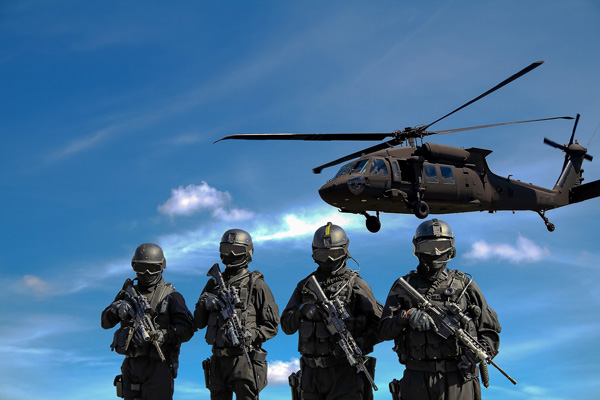US-China Military dialogue in Honolulu seeks maritime safety

[Military Maritime Consultative Agreement Working Group dialogues focus on maritime and aerial safety during military operations. Photo Credit to Pixabay]
On April 3 to 4, 2024, US and Chinese military officials hosted a Military Maritime Consultative Agreement (MMCA) Working Group dialogue in Honolulu, Hawaii.
The MMCA, established in 1998 under the leadership of then-US Secretary of Defense William Cohen and China’s then-Minister of Defense Chi Hoatian, serves as a platform for dialogue between the two nation’s militaries.
Its primary goal is to foster cooperation and address safety concerns during military operations in the maritime domain.
While these discussions have historically facilitated open communication between the US and China, recent years have seen a slowdown in engagement, with the last MMCA meeting taking place in December 2021.
At the latest dialogue, officials from the United States Indo-Pacific Command and their PRC counterparts discussed how the two nations could maintain safety and professionalism during military exercises.
Representatives from both states also talked through past “safety-related events” in the Indo-Pacific region.
For example, the two countries reviewed the 180 air intercepts the People’s Liberation Army (PLA) made on US military operations in the Indo-Pacific region from 2021 to 2023.
Air intercepts, a term that describes the interruption of military flights by unregistered aircraft were scrutinized for their potential to increase tensions, particularly amid strained political relations.
The dialogue extended beyond bilateral concerns to encompass the broader impact of military activities on neighboring countries.
More specifically, officials discussed an incident that happened last March when the PLA launched several water cannons and conducted blocking maneuvers to prevent Filipino naval activity in the South China Sea.
These acts not only damaged Filipino Navy equipment but also injured several Filipino naval officers.
Representatives also examined military operations in the Taiwan Strait and Chinese support of Russian defense industrial bases, against the backdrop of the Russian-Ukrainian war.
Despite the sensitive topics, Ian Francis, the Indo-Cam’s director of Northeast Asia policy, noted that the talks are the US’s primary means to discuss air and maritime safety with the PLA and that he looks forward to “future discussions aimed at safeguarding forces operating in the region.”
Military discussions between the PRC and the US began in November when President Joe Biden and President Xi met for the Asia-Pacific Economic Cooperation forum in Woodside, California, where they agreed to future military-to-military talks.
Following this agreement, the Chairman of the Joint Chiefs of Staff Air Force Gen. CQ Brown, Jr met with his Chinese counterpart in December, while military officers from the PRC and the US resumed their US-China Defense Policy Coordination Talks at the Pentagon in January.
US officials emphasized the effectiveness of such engagements, noting a decrease in Chinese naval aggression in the lead-up to the dialogue.
However, concerns persist regarding China’s behavior towards US allies, particularly in the South China Sea, which remains a focal point for ongoing discussions.
Following the dialogue, President Biden and Xi had a phone call discussion where both leaders welcomed open communication through diplomatic channels and dialogue.
In this way, the MMCA has opened and may continue to open doors to increased diplomacy and conversation between the two countries, promoting peace and the general welfare of their people.

- Hanah Park / Grade 10 Session 4
- Imagine International Academy of North Texas

![THE HERALD STUDENT REPORTERS [US]](/assets/images/logo_student_us.png)
![THE HERALD STUDENT REPORTERS [Canada]](/assets/images/logo_student_ca.png)
